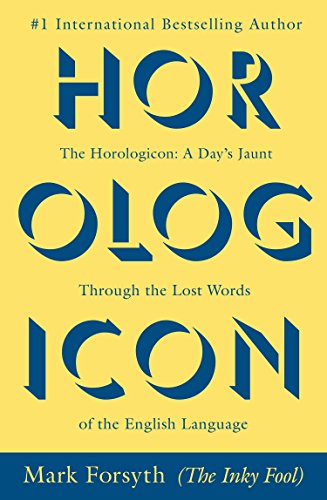As well as being used an abbreviation of post, pulse, page, pence and (in some countries at least) peso, the letter P is also the chemical symbol for phosphorus, a symbol representingpressure, poise, power and momentum in different branches of science, a particular branch of the Celtic languages in a linguistics, an indication to play softly in a piece of classical music, a function in statistical mathematics, and a designation of the clarity of a video or television screen (in which case—as in the p of 1080p—it stands for “progressive scan”). Despite all of these uses, however, P is on average one of the least-used letters of the alphabet, accounting for roughly two percent of any page of English text. So why not push P’s profile, by partaking in a few of these perfectly passable P words?
1. PABULUM
Pabulum is a Latin word meaning “fodder” or “nourishment,” which can be used in English to refer to any foodstuff that supports or nourishes. Derived from the same root, pabulation is the proper name for the process of feeding yourself, and if something is pabular or pabulous, then it’s nourishing or wholesome.
2. PACATION
The act of soothing or calming something, derived from the Latin word for “peace,” pax.
 Horologicon: A Dayu201...
Best Price: $1.97
Buy New $5.49
(as of 09:57 UTC - Details)
Horologicon: A Dayu201...
Best Price: $1.97
Buy New $5.49
(as of 09:57 UTC - Details)
3. PACTOLIAN
The Pactolus is a river in western Turkey that was renowned throughout Ancient Greece and Lydia for its supposedly gold-rich waters and golden sands. Derived from that, the adjectivePactolian can be used either to describe somewhere covered in rich, golden sands, or else something notably lavish or lucrative.
4. PADDYNODDY
An old Yorkshire dialect word for a lengthy and long-winded story that goes nowhere and might not even be true.
5. PAEDONYMIC
If something is paedonymic, then it’s named after your child.
6. PAILLETTE
Derived from paille, a French word for a husk or piece of grain, a paillette is a single decorative piece of reflective foil or glitter.
7. PALPABRIZE
To palpabrize someone is to flatter them. It comes from a 16th-century word, palp, meaning “to caress.”
8. PANCHRESTON
Derived from the Greek for “useful for everything,” a panchreston is a cure-all or panacea. Likewise, a panpharmacon is a universal medicine or remedy.
 The Merriam-Webster Di...
Best Price: $1.25
Buy New $3.55
(as of 05:05 UTC - Details)
The Merriam-Webster Di...
Best Price: $1.25
Buy New $3.55
(as of 05:05 UTC - Details)
9. PANDATION
When something shrinks, stretches, or bends under a heavy weight, that’s called pandation. Whereas…
10. PANDICULATION
…is the proper word for stretching and yawning when you wake up in the morning.
11. PANIFICATION
A formal name for the process of making bread.
12. PANOMPHEAN
Panomphaeus is an old Latin epithet for the Roman god Jupiter, which essentially means “the entire voice of a god.” The corresponding adjective panomphean can be used just to mean “Jupiter-like” or “jovial,” but more specifically describes either someone who appears to hear everything, or else any word that appears universally understood by speakers of different languages.
13. PANTAGRUELIAN
Derived from Pantagruel, the name of an insatiable giant in the title of a work by François Rabelais, if something is pantagruelian, then it’s exceptionally large or has a voracious appetite.
14. PANTOGLOT
A pantoglot is someone who can speak all languages. We’re looking at you, C3P0.
 Merriam-Webster’...
Best Price: $1.24
Buy New $16.23
(as of 05:05 UTC - Details)
Merriam-Webster’...
Best Price: $1.24
Buy New $16.23
(as of 05:05 UTC - Details)
15. PANTOMNESIC
If you’re pantomnesic, then you seem to remember everything.
16. PARBREAKING
A 16th-century word for belching or vomiting.
17. PASTE-AND-SCISSORS
Victorian journalists’ slang for throwaway, filler material.
18. PAUCILOQUY
Derived from paucus, a Latin word meaning “few”; if you’re pauciloquent, then you use very few words. Similarly, if you’re paucidentate then you don’t have many teeth.
19. PEDIPULATE
To pedipulate something is to move or knead it with your feet.
20. PEELIE-WALLY
A Scots dialect word meaning “sickly-looking” or “weak and feeble.” Peelie is probably derived from “pale,” while the wally is thought to come from an old exclamation of sorrow or woe.





